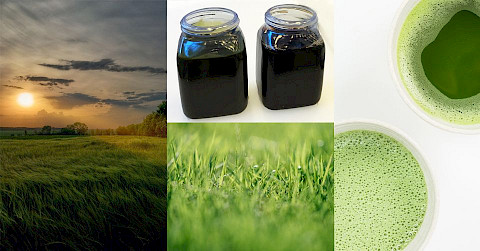
Grass, clover, and alfalfa is normally on the menu of cattle and other ruminants and not suitable for monogastric creatures like humans due to the high cellulose content. However, their substantial protein content is becoming increasingly interesting with the growing populations and focus on sustainability and plant-based proteins.
By means of microfiltration, ultrafiltration, and nanofiltration it is possible to extract and purify functional RuBisCo*) protein isolate for human nutrition on industrial scale - without destroying the protein structure. The gentle process preserves the folded structure of the proteins and thus several functional properties that make them perfect as ingredients in plant-based foods and drinks to increase the protein content – and in addition as emulsifiers, foaming and gelling agents. The extracted protein is pure, very digestible and contains several essential amino acids. On top of that, membrane filtration will remove any grassy and bitter flavors from the product.
Grass, clover, and alfalfa are primarily grown in temperate climate zones, providing high and stable yields for more than 6 months of the year. With the new process, high-value functional RuBisCO proteins are thus a sustainable and more easily accessible alternative to imported soy protein.
The process of extracting protein from grass is highly sustainable, starting with separation of the biomass into high-value RuBisCO “white” protein and green proteins, brown juice, and salts by means of microfiltration, ultrafiltration, and nanofiltration. The green proteins are suitable for animal feed, and the brown juice and salts can be utilized as biofuel or fertilizer, thus making use of all parts of the biomass.
We are excited to take part in developing this exciting new process.
*) RuBisCO is the key photosynthetic enzyme in green leaves of plants and is considered the most abundant protein present on earth.